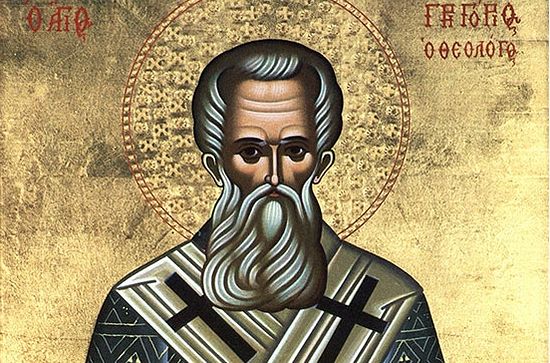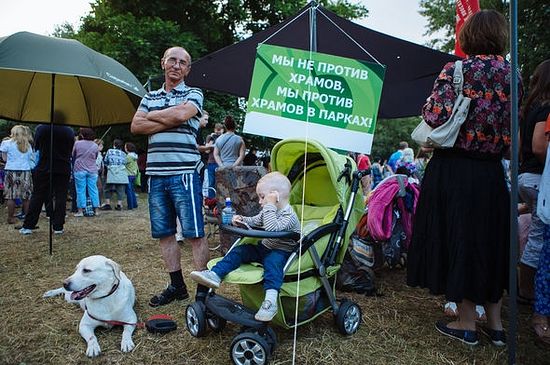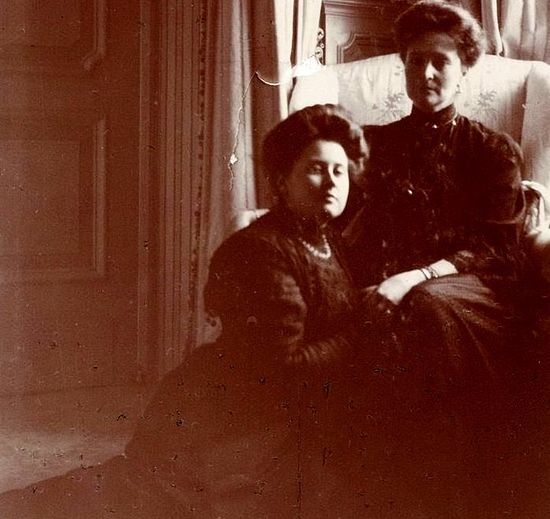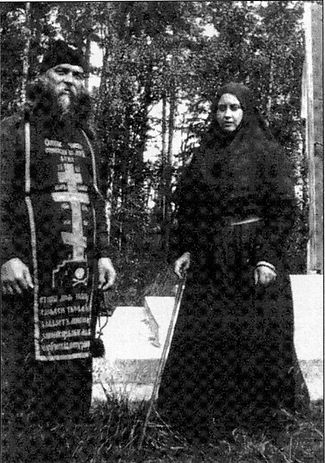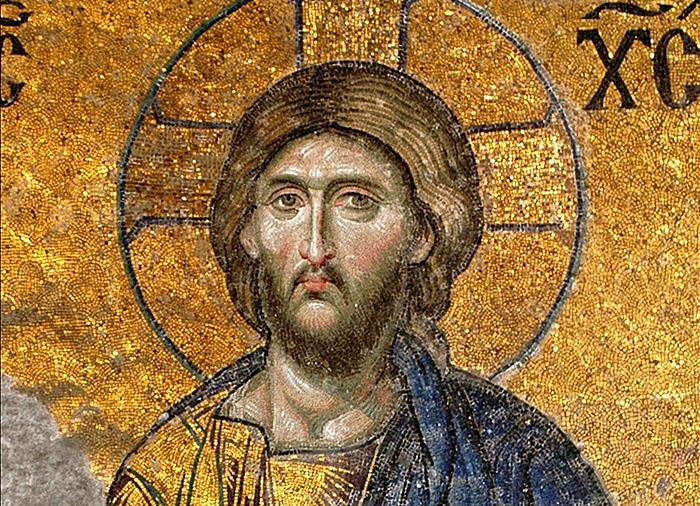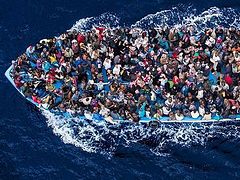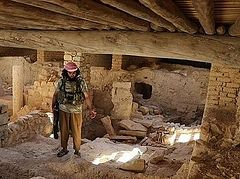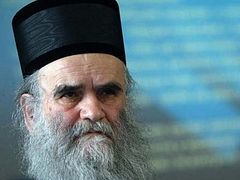On diluted Christianity, the rapid spread of Islamization, new “European values”, hatred for true Christianity, and where it all may lead.
“Comfortable Christianity is not wanting to carry your cross.”
—Your Eminence, what are the “comfortable Christianity” and “pink Christianity” you talk about in your sermons that we publish on our site [Pravoslavie.ru]? Could it be said that comfortable Christianity is the spiritual illness of our times?
—What did the Lord say? Take up your cross and follow Me. This is the meaning of Christianity. Comfortable Christianity is, first of all, not wanting to carry your cross.
This illness is endemic not only of our times, but began immediately. As soon as Christianity came to be, there were both zealous Christians and lazy Christians.
The first centuries of Christianity were by nature very uncomfortable—there were persecutions, and only the most zealous remained Christians. But those who were among the Christians simply by chance either renounced Christ, or, as many philosophers or scholars, did not want to change themselves to conform to Christian teaching. They instead wanted to change Christian teaching to suit themselves.
That is how the first heresies arose among the Gnostics. This was also a form of comfort—they wanted the convenience of thinking however they liked, without denying themselves anything.
And when Christianity became a permitted religion, from the time of St. Constantine the Great, this phenomenon of “comfortable Christianity” began. Why did monasteries become so widespread then? Because zealous Christians left the cities, where it had become impossible to preserve zeal.
Comfortable Christianity has always been around. But what I was talking about in my sermon was “pink Christianity”. This term appeared in the nineteenth century among the Slavophiles—thinking people who roused an interest in Christianity in an already quite secular society (similar to they way it was here in Russia at the end of the Soviet era), and there were people who wanted to live however they liked, denying themselves nothing, but nevertheless calling themselves Christians.
“Pink Christianity” is a kind of diluted Christianity. At the beginning of the twentieth century it led to renovationism, but fell under the grindstone of atheistic ideology. Not finding any response from the people it withered on the boundless spaces of the Soviet empire.
At the end of the twentieth century—in the late ‘80’s, early ‘90’s—many intellectuals again ran to the Church. But why did they run? Not to follow Christ, but because it was fashionable. The Church was regarded as an opponent to the government—although the soviet government had always been an opponent of the Church, and not the other way around.
So this huge number of people from the intelligentsia poured into the Church, not coming for Christ but for something else. Now these people are leaving the Church.
A similar situation can be seen in the monasteries. In the 1990’s, many people came to the monasteries. They lived there for ten to fifteen years, some even became priests, but now they are leaving. This is because they came not for Christ but rather to escape difficult lives, because they had nowhere else to go. Many people came from impoverished republics to join Russian monasteries. Their spiritual directors blessed them to join the monasteries. So a person having no monastic calling ended up in a monastery, suffered through it for ten to fifteen years, and then left.
People are now leaving who came to the Church for something else, and not for the sake of salvation. And of course, sooner or later they are disappointed. If they don’t come to the Church for Christ, temptations begin immediately.
Some don’t even make it in the door—they come and some granny leaps at them, and they walk away. These grannies are a crude filter in the church. They are often scorned and criticized, but they filter out those who came to Church not for Christ but for something else.
Many today want the Church to be a “Church of good people.” But the Church is a hospital. Here all the masks, all the curtains fall away, and a person is seen for what he is. And of course what he is rather unsightly.
People who don’t come to Church for Christ are looking for some kind of comfort, a peaceful state of being. There will be a peaceful state, and comfort—but a different kind. However, we have to grow into that state.
—But Your Eminence, how can these people be woken up? People come to church, they receive the Sacraments, but it’s all as if out of inertia. Who needs a cross?! They need everything to be comfortable: that the service is not too long, that the fasts are relaxed, and in general so that there would be no hindrances, because they have to go to work tomorrow.
—In peaceful times like we have now, everyone can go to church because there are no persecutions, and a large portion of Christians will be just as you said. It has always been that way.
The percentage of true Christians in the history of the Church has not changed—it has always been small: three to six percent out of the masses who call themselves Christians. They are delineated in times of persecutions, as during the Soviet period: persecutions began, and these masses that simply went to church just stopped going. People were awakened by war, which was a visitation by God. But when there is no war, sorrows and sickness bring people closer to God and make them think about the temporariness and inconstancy of earthly life.
“ISIS is a force that will wipe out antichristian Europe”
—You live in an Islamic region. Tell us about the zeal of Moslems. I have seen some authors, Fr. Dimitry Smirnov, for example, who say that Russians often embrace Islam because there is zeal and burning faith there.
—Those who accept Islam are precisely those who are Christian only in name. A true Christian, of course, would not become a Moslem purely due its theology—those who thoroughly know our theology and also know something even superficially about Islam can understand that there is no salvation in Islam. Those who leave are those who don’t know these basics.
In Tadjikistan these days there is a forceful movement toward Islamization. These processes have been going on for a long time, but they are now gaining increasing momentum. Moreover it is the youth who are doing this. If people of the older generation, who still remember the Soviet Union, do not zealously keep the fasts or observe other outward practices, the youth are fulfilling them fanatically.
The motivation is mainly pride—these boys and teenagers are showing off to each other. They consider it a shame if you can’t keep the uraz.1
In recent years the uraz has fallen on the hottest days of the year. Here the temperature rises to 60 degrees Celsius in the sun, and they work in the sun doing hard physical labor. They can’t eat, or even worse, they can’t drink. They literally lose consciousness; others spray them with hoses, but they don’t drink! “You have been given permission from the mosque to drink water in heat like this!” we say. No, they won’t allow themselves to drink water because it would be a disgrace.
—But why isn’t it a disgrace for us? As soon as the fast begins everyone says that the Typicon is for monks, but we are all sickly and we drive cars, we can’t let our reaction time lapse, etc.
—Yes, our people are always asking blessings to relax the fast (laughs).
—Why is that?
—Do you know why? Perhaps we have already grown old in Christianity? Like the Greeks did in their time. We have been Christian now for many centuries, and when a nation is baptized, when it has just accepted Christianity, ascetics arise who observe everything very zealously. Their fervency goes over the top.
And it could be that the Islamic world’s drive to zealously observe all their rites is an assurance that when they accept Christianity (and there is a prophecy that a third of the Islamic world will accept Christianity), they will be very zealous Christians. They will put us to shame, and their zeal might spur us on.
You know, I recall the words of St. Gregory the Dialogist. He asked which is more correct: to zealously keep the fasts and be ascetic but proud, or to be humble and keep almost nothing?
—Of course, to keep nothing?
—(Laughs.) Modern Christians answer just like that! But Gregory the Dialogist says, no. Let there be pride, but the person should labor ascetically; and the Lord Himself will find a way to humble him.
However, there are few of us who zealously observe everything. Well, maybe the monastics. Although, not true—there are laypeople who do. Sometimes it’s shaming when you confess laypeople and they repent, for example, that during Great Lent they ate vegetable oil during the week. Meanwhile we ourselves eat food with vegetable oil and even forget to confess it—it’s become a norm for us. But there are some very zealous laypeople.
It’s also very important to have an example nearby. If there is no example it’s very difficult to force yourself to do something.
We always need a teacher. There are hardly any ascetics who grew without a teacher—it is very great asceticism if one is able to force himself [without a guide]. But I think that even these had some sort of teacher who inspired the ascetic to emulate him.
But the tragedy of our times is that we are incapable of being disciples.
Fr. Raphael (Karelin) said it well: The last Glinsk elders were dying—those spiritual giants with enormous experience and priceless treasures that they wanted to pass on to us. But we, he says, were not able to receive it; because of our feebleness we couldn’t take it on.2
People have become weaker, they can’t receive this rich spiritual experience, because it is a cross—a very heavy cross.
This break between elders and novices can be seen now: Why are there practically no elders left? Because there are no obedient disciples, no people who are capable of receiving this wealth of experience.
Everyone has become very feeble. This whole aggressive informational milieu, modern technology, computers—all makes us very feeble. Young people never put down their telephones, they are constantly looking at something or playing computer games, and this paralyzes the will.
This is all aimed at entangling people in cunningly placed nets, so that they can’t break out of them.
Specifically the will for asceticism is paralyzed. Everyone knows and understands all this very well but they can hardly do anything about it. It is because this web has ensnared all of us, and only the Lord can somehow interfere and change it all. Thus have we gotten stuck in these nets—and this includes you and me.
—Your Eminence, on the one hand we see an aggressive Islam in the form of ISIS. On the other we see the “new European values” in Europe, gay marriages, and so on, which are gradually creeping into Christian countries. How can we stand against this?
—Yes, there are two forces as you have well delineated: anti-Islam and anti-Christianity.
In the Islamic world an anti-Islam is rising in the form of a politicized ideology of the Islamic state. It is destroying Islam from within, exploding it, because if this Islam is spread it won’t last long.
In its beginning, Islam was not like that. It did not destroy Christianity utterly.
We know that when the Turks conquered the Byzantine Empire, the Constantinople and other Eastern Patriarchates remained—yes, they were crushed, deprived of their former greatness, seriously cut back to those three-six percent of believers, but churches remained in which they were allowed to pray and offer the Bloodless Sacrifice. Moreover, the Balkan Churches lived under the Turks better than they did under the Greek-Phanariotes.
The Turkish yoke turned out to be better than the Greek one for them: The way the Greeks suppressed manifestations of nationalism in the good sense of the word was completely unacceptable. They did not allow them to have services in their national languages, they did not ordain priests from the local population—there were many things like that. But the Turks allowed all of this, if they were not rebelled against.
You pay the taxes3, buy them off, and they don’t touch you. The Koran forbids killing people of the Book—Christians and Jews. They are supposed to be in a degraded position and pay tribute, but killing them was forbidden.
ISIS acts in a very different way; it is leaving piles of corpses and ruins of churches in its wake.
And what is happening in Europe? If here we have anti-Islam, there we have anti-Christianity.
Just look at how this pyramid has begun to be built: anti-Christianity has taken over Europe, and then ISIS appears—a force that is supposed to wipe out antichristian Europe.
The distribution of power has already been determined. And this is a punishment from God on the godless for the sins of Sodom that Europe has legitimized. These sins cry out for retribution.
This can’t go on much longer—these are sins that force God to act. And punishment will come; many Athonite elders are talking about this.
They say that Europe and the whole Western world can expect a terrible punishment, and one instrument of this will be precisely the “Islamic state.”
—How does this affect those of us in Russia?
—It is far from perfect here in Russia. You know, when I come to Russia and catch a taxicab, I have noticed many times that the cab driver turns away from me, he doesn’t want to see me, hates me, and barely forces himself to talk to me through his teeth. I endure great difficulty just getting to my destination.
—You are wearing a cassock at the time? Forgive me for asking.
—Yes, I always wear a cassock. And although not everyone guesses that I am a bishop, it is clear that I am a clergyman.
—You are talking about our own Muscovite taxi drivers, and not immigrants?
—Yes, our local Moscow area drivers. Once or twice it was a man, one time a woman… It’s terrible what I come up against. They hate the Church, and can’t stand clergymen. They are so noticeably repulsed that they can’t even talk to me. Here (in Tadjikistan.—A.P.) this never happens. The Moslems respect us. They say, “Yes, yes, the Russian Church—we respect you, please, you are welcome.” The difference is like night and day.
I come to Orthodox Russia and see that they hate me there; many hate me, I would even say, the majority.
I myself am from Sergiev Posad4, I grew up there. It’s an amazing thing about these cities: there are emphatically non-religious people living in them. My neighbor, for instance, lived for decades next to the Holy Trinity St. Sergius Lavra—the first house after the Lavra. His family says that he has never been there once. I find this a paradox. It’s hard to believe. He couldn’t stand the ringing of church bells. He finally left—he couldn’t bear living there.
You see, there are very many problems in Russia. There are a huge number of people who hate Orthodoxy, true Christianity.
But they’ll accept “pink Christianity”, which doesn’t irritate them or cause them any discomfort.
The fight for the building of a church in “Torfyanka” park5 exposed a very serious sickness in Russian society, to some extent in Moscow. Muscovites have always been quick to protest any discomfort.
“Before the revolution, it was also as if people did not understand what they were doing.”
—You have said it exactly: “They have always been quick to protest any discomfort.”
—Well, you have to be temperate in protesting and understand what you are protesting against, what you are fighting. It’s absolutely insane to fight against the building of a church in a square or park.
A church takes up very little space in comparison with a whole park. Just because a church is built doesn’t mean that all the trees will be cut down—to the contrary, more will be planted.
A church is always beautiful, and usually fits in well with the surrounding landscape. It makes the park even more beautiful!
I just can’t understand those people who are bent on walking their dog or strolling their child, so long as there is no church. What will the child grow up to be if for his sake you prevented a church from being built?
You see, you have to take one thing into consideration—something mysterious, metaphorical, if you will. The situation now is very much like what we had on the eve of the 1917 revolution.
—I wanted to ask you about this. It’s very interesting.
—Before the revolution, it was also as if people did not understand what they were doing. They couldn’t imagine at all what lay ahead for them—that hideous catastrophe—how it would all end. They were like madmen, fighting for freedom. Everyone was fighting, every social class, including many of the clergy. They were fighting against autocracy. The best ones became new martyrs, and others only began to understand—in the prison camps—just what sort of freedom they were fighting for.
And there is one aspect that has never been specially researched: it would be very interesting to follow the fates of these people—what those who were against the autocracy said, and what turns their lives took after the revolution. It is as if each one who participated in the revolution was preparing a horrible tragedy for himself in the future.
But the Lord preserved many of those who did not participate. The majority of them emigrated.
One outstanding example of this was Anna Vyrubova.6 You would think that she would have been one of the first to be executed and destroyed. But she was able to leave, and ended up in Finland. She also went through many sorrows and temptations, but she died a natural death. She was dedicated to the Royal Family, and for this dedication the Lord preserved her, just as He did many others—bishops and simple people.
This is important—to follow the fates of those people, how they had to pay for what they did in their state of blindness.
And those who today are fighting against the building of churches are preparing a tragedy for themselves in the future. A personal tragedy.
You must understand that this force (ISIS.—A.R.) is getting ready to attack not only in Central Asia, but also Russia, Moscow, and other places. And how many potential collaborators can be found in Moscow! All they would need to do is give the battle cry.
How this punishment from God will spread depends upon what we do now. Because when this punishment starts, when that “evil day” arrives, that’s it—you can’t stop it. Look at the Ukraine: just try to stop it. Who could have thought of this three years ago? The flourishing Donbass was part of the Ukraine!
<…>
In Tadjikistan, I have seen people who lived through the civil war.7 This is a terrible thing; they are scarred for life. But the youth who have never seen war have gone mad over ISIS!
Just today I heard information that some teenagers in Tadjikistan hung out an ISIS flag. They don’t understand, and it’s useless to explain anything to them. They now have a goal, a reason to exist.
The processes are going on, and they are going on rapidly. We cannot just sit by and watch. They are Islamizing, they are active—but what are we doing?
We are feeble, people are leaving monasteries, and the intelligentsia is leaving the Church. We are becoming totally paralyzed.
But what did the Lord do in such situations? Retribution, punishment, war—so that people would shake themselves up and turn to God. But God doesn’t send punishments; people start wars and cause cataclysms. God only allows them to happen when there are no other means of correction left.
We are bringing these punishments on ourselves by our feebleness, by our warring against the building of churches and other such conflicts.
Now there is the conflict surrounding a [blasphemous] exhibition at the Manezh. We are again being dragged into this conflict. You can see that both [the blasphemers and the Orthodox activists] are sinning. They are dividing us, the Orthodox, also. It often happens this way. Their aim is to pull us in and divide us into two parties—“for” and “against”.
I can’t agree with the methods that Dimitry Tsorionov (Enteo) uses: running around and searching out places where his sensibilities are offended. That’s on the one hand. But on the other, we can’t endure what is happening. No other religion would countenance such blasphemy. Well, some Christians are capable of having their own blasphemous exhibits, even worse ones. The shameful “I am Charlie” march shows this.
“A depraved society inevitably turns into Sodom.”
—There are also some Orthodox who are capable.
—We are also going down the path of Western Christianity. The apologetics of sin. Why do you think it’s become possible in the West to legalize “same sex marriages”?
—Why?
—Why have some Protestant Churches accepted it? Because they can’t help these people in any way. These unfortunate people come to those pastors and the pastors don’t know what to do with them. They can’t give them any recommendations. It’s easier to say that this is not a sin and the problem will be solved. That’s their solution. But this is very unmerciful with regard to these people.
You can see that there are more and more of them, because the West itself, and our Russian society in its tracks, have become extremely depraved. And a depraved society inevitably turns into Sodom.
When an unrepented sin accumulates over several generations it turns into perversity. If the parents were just fornicators and debauchers, the children will become perverts.
Their children are wretched people. They say, “We were born this way, we can’t do a thing with ourselves, we can’t have normal families.” And this truly is a tragedy. The parents are largely at fault for this tragedy. What are these children supposed to do now?
Their degree of brokenness is greater—they can’t create a family. But their reward will be the greater from the Lord if they will live in total abstinence and chastity.
But this needs to be explained to them.
In my sermons I often cite an example from the life of St. Seraphim of Sarov. When he was asked who in Sarov Monastery is [spiritually] the highest of all, he said, “the cook.” Everyone was horrified. “How could it be the cook? He is vicious, he pounces on everyone!” But the saint replied, “Yes, he was born with such a bad character that if he didn’t constantly restrain himself he would murder everyone in the monastery. But God looks at the man, at how he forces himself.”
It’s the same in this case. We all have different passions, different inclinations. If we force ourselves, the Lord will reward us.
Even these people. They can win crowns for themselves. We need to encourage them like this, to tell them that this is an ascetic labor, that the Lord is calling them to this podvig of asceticism so that they may make it all straight, perhaps even redeem their parents’ guilt, so that the Lord would have mercy on them as well.
We had one incident in the Holy Trinity-St. Sergius Lavra. Several monks were tonsured. Christ appeared to one of their spiritual fathers and said, “Because they received the angelic image, because they had the resolve to do this, I will have mercy on their parents also, although they are not worthy of it.”
Amazing things like this happen among us in the Church.
God has an entirely different judgment. The whole world for Him is outside of time.
We live in a kind of short, historical period. We are located within a given slice of time and try to understand something, to evaluate something. But God has the fullness of time, and He knows how, what, and why—each original cause, the whole interdependence of all phenomena.
We can observe the activity of God’s Providence, be amazed at it, but nothing more.
And we can thank God that we are the way we are. This includes these very people who were born that way—they must also thank God for this. But they should under no circumstances allow manifestations of sin to take over.
But the Western, Protestant Churches—many of them, not all, of course—have solved the problem this way: they have “permitted” the sin. This is an antichristian approach.
When there will be a church of antichrist—and there will be, because he will proclaim himself god—it will permit everything, any kind of sin.
The antichrist will say: “Christ forbade you everything, but I permit you anything, and you will live like in paradise.” He will be “nicer” than Christ. And we have been hearing this preaching of “love” for a long time now.
People criticize us Christians, saying, “You have no love.” This is their complaint against us. But before we can talk about love we have to determine the Truth. They say to us, “Let’s unite all the Churches in love.
No, before we have a dialogue about love let’s determine the Truth.
God is not only Love but also Righteousness, Justice, and Truth.
“I am the Truth,” said the Lord. Therefore we should first determine the most essentially important points for us—is this religious teaching true or not, is it right, or is it a lie.
But they want to unite us in love without the Truth—but that love is adulterous. It must never be permitted.
What do all these liberal societies say? That they love each other, that they have love. “But you have no love, you have only hatred,” they say to us. But this is not hatred—it’s just that the Truth burns. True love burns them; it burns them with its truth.
It is even impossible to get close to it; when we begin preaching the true faith, we run into resistance, hatred, a barrier. But the preaching of sickening sweet love does not provoke any resistance; at the worst it provokes indifference. Sectarians walk around and invite the first person they meet to unite with them in the embrace of their sirupy love.
Adulterous love—that’s precisely the kind of love the antichrist will bring, seducing and beguiling everyone.
We have to understand: Where there is Love, there should be Truth.
These are the two wings on which a person ascends to heaven; two essential qualities of God. And there cannot be one quality to the detriment of the other; one cannot diminish the other. They go together: Love and Truth. There must never be Love to the detriment of Truth, nor Truth that is not warmed by Love. Such righteousness unwarmed by Love kills. I will write you an article on this subject of love without righteousness, which is becoming more and more needed even in an Orthodox setting.


